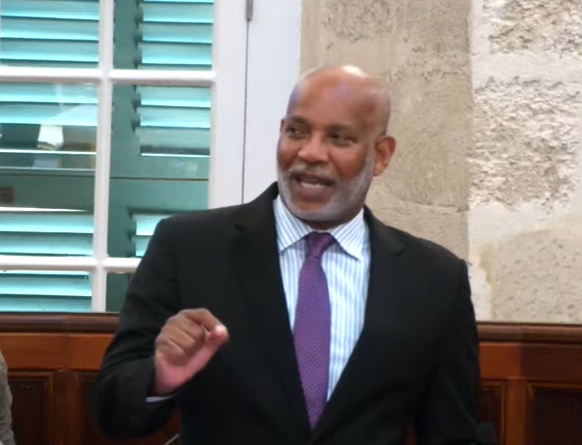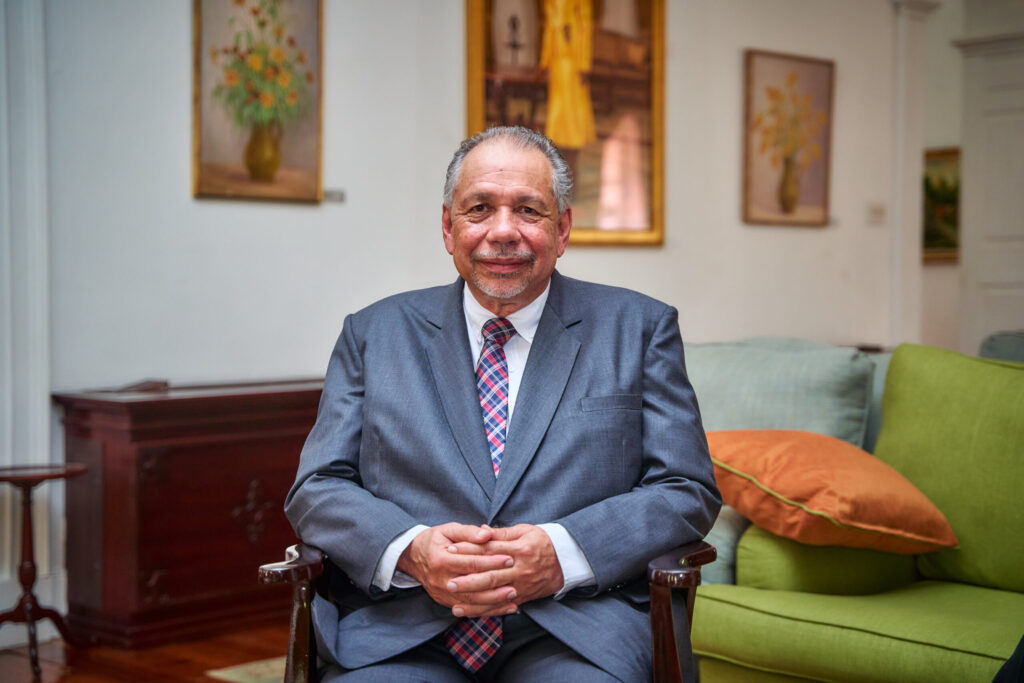New guidelines on the use of artificial intelligence in legal practice are being finalised, lawyers heard Friday, as the island’s courts move to regulate technology that both the chief justice and attorney general have cautioned could undermine professional competence if misused.
Addressing a special sitting of the Supreme Court to admit 34 new attorneys to the Bar, Chief Justice Leslie Haynes, in supporting an earlier caution by Attorney General Dale Marshall against relying on AI to defend clients, informed the legal fraternity of pending guidelines to manage its use.
He told the new lawyers: “With respect to artificial intelligence, I am in support of the use of technology to improve efficiencies and enhance time management. It is clear to me that we are long past an era in which technology is not part of the backbone of the legal practice. I want you all, however, to stand on your own research and to read your authorities.
“There is no artificial-generated substitute for you knowing the case that you have to argue or defend. Part of your claim to competence is being able to stand on your own work. Just like your secretary, AI can assist you, but it cannot be a substitute for you. The honourable attorney general’s submission that AI cannot replace sound judgement is fully accepted by the bench. We have, in draft, a practice direction related to AI, which will be reviewed by the Rules Committee at its very next meeting.”
In his address to the young lawyers, Attorney General Marshall declared his aversion to the use of AI in the practice of law, except in “very limited ways”.
He referenced several instances in the region where courts have chided and chastised attorneys for relying on artificial intelligence to “the detriment of their clients’ case, but also to the impoverishment of the court and our jurisdiction . . . not to mention their own professional reputation”.
“I do not dispute that AI can add value to the legal environment,” he said. “But I wish to sound a cautionary note. AI cannot supplant sound judgement. I contend that your clients will be paying you for legal advice; but more importantly, they will be paying you for your sound judgement.”
He suggested that attorneys may use AI, if they must, as a research tool, but that they should always ask the question: “What is my opinion on this issue . . . what is my perspective on the law?”
He continued: “You must ask yourself, am I prepared to regurgitate to the court what AI tells you the law is, or am I prepared to find that one case, and apply my mind to distinguishing the case, and perhaps take the law in new directions?
“And if all of us will be using AI to do our work, then what will there be to distinguish us from each other in terms of the practice of the law? Will it be the attorney who is better funded and can afford to invest in the best technology who will rise to the top, or will it be the attorney who spends his days and nights researching the law, reasoning out his judgements, and by skilful analysis of the evidence, arriving at a good result for his client?”
Marshall suggested that there should be no fear of AI, but all concerned must be willing to insist on some clear guidelines for its use in Barbadian courts.
He said: “We don’t have to reinvent the wheel, as many other jurisdictions have already issued practice directions on its use. Some of these practice directions, Your honours, stipulate that the attorneys and the court are responsible for the accuracy of the work product; and that any information generated by AI must be cross-checked against reliable databases and legal sources, to ensure that it is accurate and trustworthy; and this includes the verification that all citations, legal and academic authorities, case law and legislative references do exist, are accurate and are relevant to the proceedings.
“The practice directions go on to say that AI does not absolve the author from any ethical or professional responsibilities. In addition, individuals are encouraged to use enterprise-grade platforms and not the freely available offerings on the Internet. As you can tell, Your honours, practice directions in this particular subject have been applied to both judges and the advocate.”
The ceremony was attended by the judges of the High Court and Court of Appeal, Acting Director of Public Prosecutions Alliston Seale SC, Solicitor General Anika Jackson SC, President of the Barbados Bar Association Kaye Williams, and relatives of the new attorneys.
Zanyah Belle is one of those who was called to the Bar. She said she is looking forward to learning and putting the knowledge and skills taught into practice.
“My journey has been a difficult one; but I believe that everybody’s journey is altered by their circumstances. But it was definitely an enjoyable one,” she told Barbados TODAY on the steps of the High Court following the formal proceedings.
emmanueljoseph@barbadostoday.bb
The post Marshall: Sound judgement, not technology, makes good lawyers appeared first on Barbados Today.


